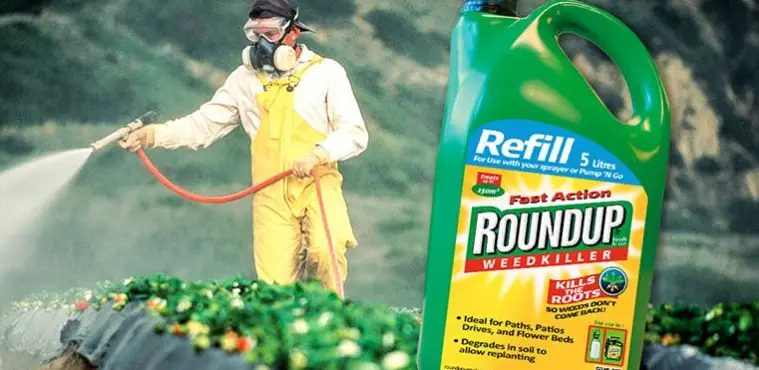How Dangerous is Glyphosate?
Glyphosate is a widely used and dangerous pesticide which has been under a lot of fire in recent years. A few years back, the WHO classified glyphosate as a Group 2A carcinogen, putting its producer Monsanto (Bayer) under a lot of pressure. Experts from around the world are urging Monsanto to stop producing glyphosate. With the number of organic growing operations increasing in recent years, one would think that glyphosate’s use will be reduced. However, it’s still very much in use.
Glyphosate in Organic Food
The NOP recently announced that glyphosate is allowed for use in “organic” hydroponic food production. As it turns out, even the organic products are not so organic after all. Glyphosate is a highly toxic herbicide that farmers spray before they construct hydroponic greenhouses and are awarded a green certificate. The herbicide is used to remove weeds from the greenhouses and get the soil ready for planting.
These farming practices don’t really even see the light of day. The issue was only brought forward by an organization called Real Organic Project, which is trying to force the USDA to provide more transparency on such topics. Dave Chapman, the organization’s CEO, says that false organic produce is being sold to customers and they aren’t even aware of it. As Chapman explains, farmers are first leveling a field down like a parking lot, then spray it with pesticide before planting berries or tomatoes. Consumers can’t spot the difference between organic and faux-organic products which are far cheaper and taste almost as good. However, they’re also filled with pesticides.
Marie Burcham from Cornucopia says that it’s important for the public to realize this. Organic tomatoes and berries don’t come cheap – the price is usually the first red flag about it. Even though it’s obvious why glyphosate shouldn’t be used on organic products, the USDA allows its use in aquaponic, hydroponic, and aeroponic production. As they explain, glyphosate doesn’t touch the plants themselves, making them organic. Sounds crazy? That’s because it is. Everything that goes in the soil eventually ends in the plant and that includes glyphosate.
How Dangerous Are Herbicides in Hydroponics?
Very much. Besides the obvious fact that the process of using glyphosate to kill weeds makes organic farmers all but obsolete, the fact that we’re consuming food riddled with it is dangerous on its own.
According to Jennifer Tucker from the NOP, spraying the ground with glyphosate weeks before planting is fully legal. There’s no legal mechanism that can stop companies from doing it, and as she explains, there’s really not much evidence that can win a legal battle. Just because glyphosate isn’t touching the plant at all.
The USDA doesn’t believe that spraying glyphosate before planting organic produce is a disqualifier for organic production. Tucker says that USDA organic was created to protect farmers from frauds. Now the program has become the fraud it was trying to prevent, but regardless of the people’s opinion, the USDA won’t change its stance.
All organic farmers are given a three-year transition period, yet hydroponic producers are given an exemption. During this period, the land must be free of any herbicides such as glyphosate and any other dangerous substances.
Hydroponic farmers don’t even take the health of the soil into consideration. Herbicides and agrichemicals can ruin the microbiome of the soil, resulting in produce of lesser quality. Glyphosate is ruining the planet and our health which is why we all need to raise our voice.
What Can We Do?
Well, the first step is to get people to talk about it. Second, you need to start checking the labels of the organic produce you’re buying. Some may state that the organic produce is hydroponically grown, but some may not state it. That, however, doesn’t mean that the produce isn’t grown with hydroponics.
Berries are available in spring and summer, so if you see them at a season that’s clearly not their own, they probably haven’t been grown organically. If they’re labeled organic and they’re cheap, it’s more than obvious that something’s not right. The same can be said for any kind of produce, not berries alone.
If you really want organic produce, you should grow it on your own. It’s not as hard as people think and will definitely save you from all the dangers of glyphosate and other herbicides.

